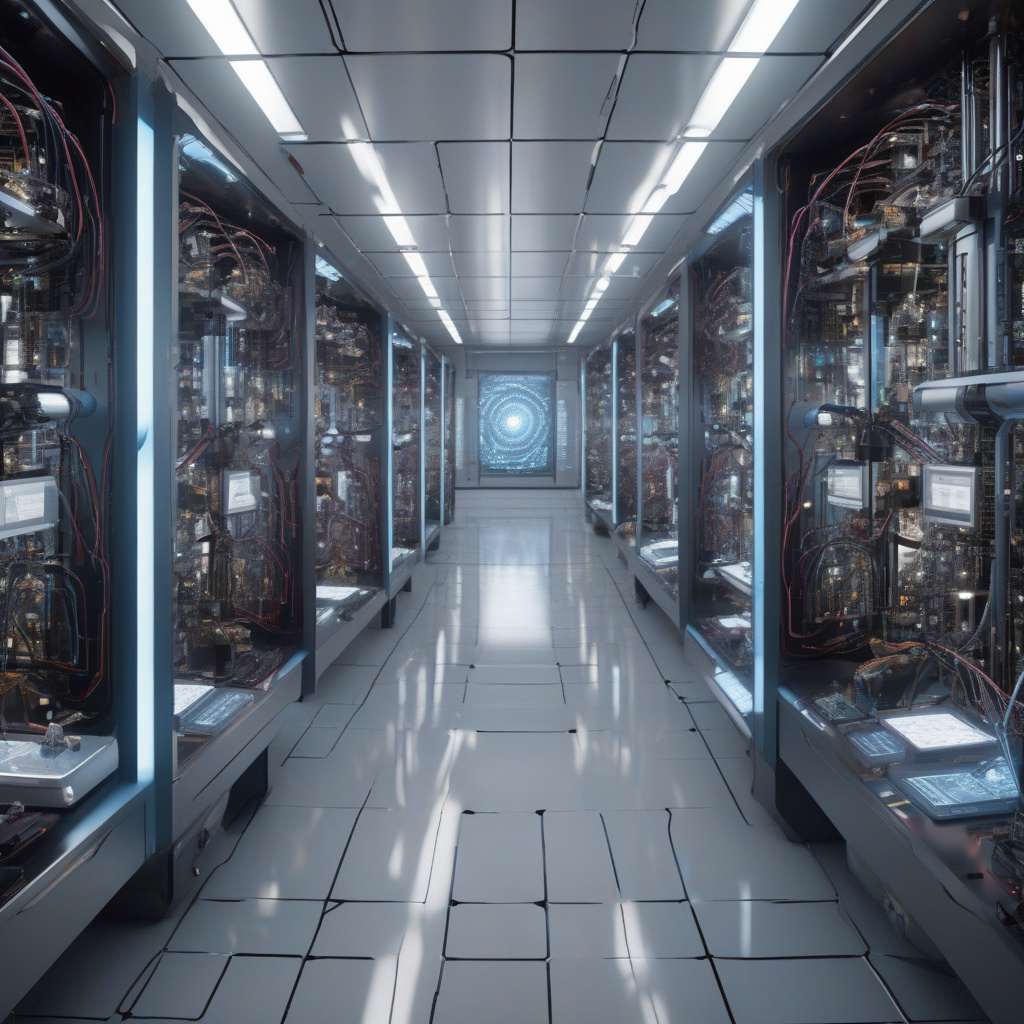Accelerating Quantum Computing Experiments with AI
In the fast-paced realm of quantum computing, where the tiniest particles hold the key to unprecedented processing power, researchers are constantly seeking ways to push the boundaries of what is possible. One such groundbreaking method that has been making waves in the scientific community is the utilization of artificial intelligence to expedite quantum computing experiments.
At the forefront of this innovative approach is the use of AI to assist in assembling atoms for future quantum computers. Traditionally, the process of manipulating individual atoms to construct the complex architectures required for quantum computing has been a painstaking and time-consuming task. However, with the integration of AI algorithms, researchers are now able to streamline this process, significantly reducing the time and resources needed to fabricate these intricate systems.
One of the primary ways in which AI is revolutionizing the field of quantum computing is through its ability to optimize the placement of individual atoms with unparalleled precision. By leveraging machine learning algorithms, researchers can rapidly identify the most efficient configurations for assembling atoms, allowing them to expedite the development of quantum computers with unprecedented speed and accuracy.
Moreover, AI is also playing a crucial role in enhancing the performance of quantum computing systems by predicting and mitigating errors that can arise during experiments. Quantum computers are highly susceptible to noise and interference, which can lead to inaccuracies in calculations and hinder the overall performance of the system. By harnessing the power of AI to analyze and correct these errors in real-time, researchers can ensure that quantum computing experiments yield more reliable and consistent results.
Furthermore, the marriage of AI and quantum computing holds immense potential for driving innovation in a wide range of industries, from healthcare and finance to cybersecurity and materials science. The ability to harness the power of quantum computers to solve complex problems that are currently beyond the reach of classical computing systems has the potential to revolutionize entire fields and pave the way for groundbreaking discoveries and advancements.
In conclusion, the integration of AI into quantum computing experiments represents a significant leap forward in the quest for achieving practical and scalable quantum computing systems. By leveraging the capabilities of artificial intelligence to expedite the assembly of atoms and enhance the performance of quantum computers, researchers are poised to unlock new possibilities and usher in a new era of innovation and discovery.
#QuantumComputing, #ArtificialIntelligence, #Innovation, #Research, #FutureTechnologies












